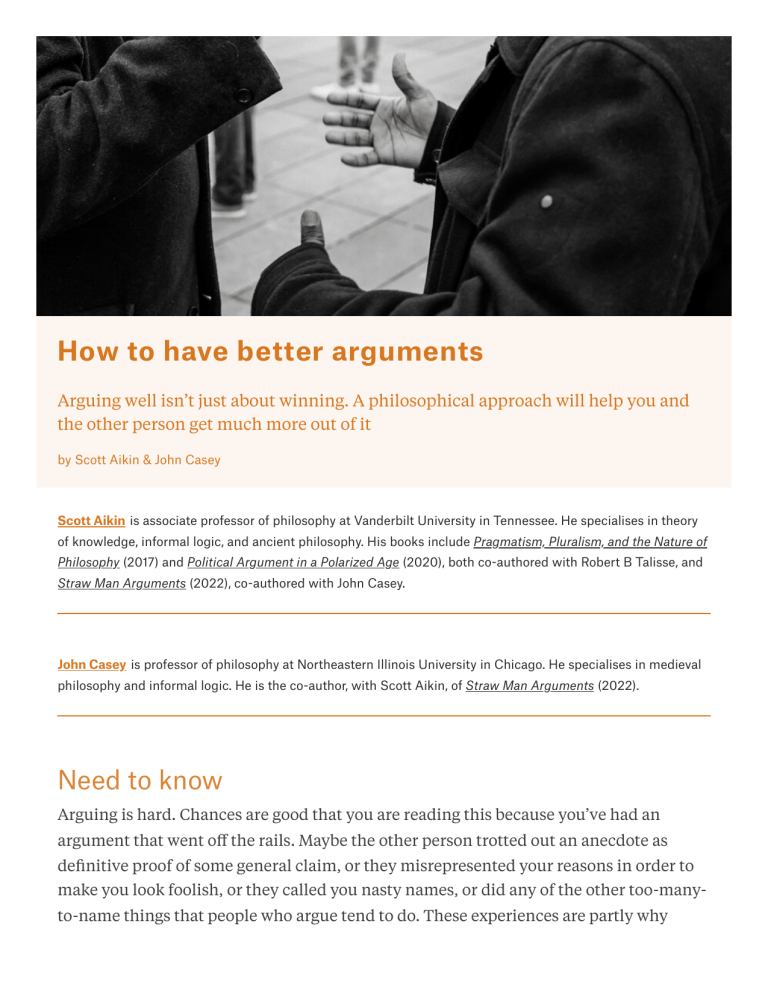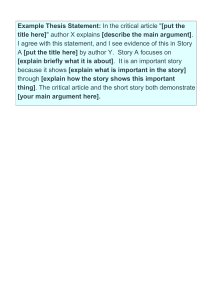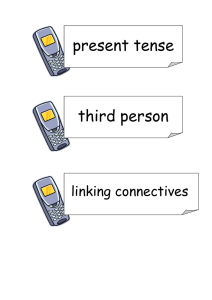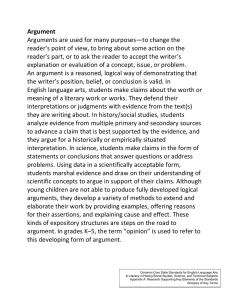
How to have better arguments Arguing well isn’t just about winning. A philosophical approach will help you and the other person get much more out of it by Scott Aikin & John Casey Scott Aikin is associate professor of philosophy at Vanderbilt University in Tennessee. He specialises in theory of knowledge, informal logic, and ancient philosophy. His books include Pragmatism, Pluralism, and the Nature of Philosophy (2017) and Political Argument in a Polarized Age (2020), both co-authored with Robert B Talisse, and Straw Man Arguments (2022), co-authored with John Casey. John Casey is professor of philosophy at Northeastern Illinois University in Chicago. He specialises in medieval philosophy and informal logic. He is the co-author, with Scott Aikin, of Straw Man Arguments (2022). Need to know Arguing is hard. Chances are good that you are reading this because you’ve had an argument that went off the rails. Maybe the other person trotted out an anecdote as definitive proof of some general claim, or they misrepresented your reasons in order to make you look foolish, or they called you nasty names, or did any of the other too-manyto-name things that people who argue tend to do. These experiences are partly why people view argument as hostile and intellectually unproductive – something to be avoided. Perhaps you are looking to learn some new terms to describe the annoying moves people make, or maybe you’re looking for ‘one weird trick’ to ‘own’ others with facts and logic. Well, we have some good news and bad news. Fancy terms, we’ve got a few, but our focus in this Guide is primarily on how to think about what is truly at stake in arguing, why it goes awry, and how to get it back on track. To our minds, the key to arguing better consists not in learning new tricks, but in recognising how arguments work and why they are important. Arguments and the problems they pose Let’s first get a handle on argument. To start, we need to differentiate between an argument as a product and argument as a process. As a product, an argument is a collection of reasons (called the premises) and the thing that the reasons show (called the conclusion). So, for example, the utterance ‘Bring your jacket because it’s going to rain’ is an argument in this sense. So is ‘God exists because the world needs a first cause, and God is the first cause.’ In contrast, as a process, an argument is an exchange of reasons between interlocutors. Two people exchanging reasons over jackets or God’s existence is an argument in process. From our perspective, the rules for a better argument process are ultimately derived from the rules for good argument products. This is because, in the end, what people who argue are wrangling over is what conclusion everyone’s best reasons jointly support. What are arguments for? This is deceptively easy: we exchange reasons with others in order to affect their beliefs or commitments. I give you reasons to believe that something is true because I want you to believe that it’s true, or to believe more strongly. Maybe we disagree about it, maybe we don’t. Either way, I give you my reasons. And you weigh them. People do this so often, and about so many things, that they rarely note it. ‘Bring your jacket,’ one might say, ‘because it’s going to rain.’ This is an argument, a mundane one, but it’s worth noting that it’s out for belief-change and then actions in accord with that belief. We disagree, and so argue, over things both big and small. Many of these disagreements pose a problem for how to go forward, in light of the differing views. Let’s say you and a random Twitter user, let’s call him HockeyDad1989, disagree over abortion. On his view, abortion ought to be illegal in all circumstances; on your view, it ought to be legally permitted in most cases. Clearly the answer to this question matters greatly to whether people can have abortions. It’s not like a dispute over whether it’s OK to put ketchup on a hot dog (don’t do this in Chicago, by the way) – it must be settled. Sure, we could settle it by any number of methods, like rolling dice, examining entrails, or (God forbid) trial by combat, but reasoning it out together offers the highest chances at arriving at the best answer and improving everyone’s cognitive standing. Under ideal conditions, HockeyDad1989 offers his reasons, and you offer yours. And then you, together, see where those reasons go. But it’s here that we get into trouble. The primary problem is tied to the very nature of the thing that argument is intended to affect: belief. It’s manifestly obvious that you think your beliefs are true, just as other people think their own beliefs are true. This is what makes them beliefs rather than hopes, desires or fears. This starting point can make it difficult to even contemplate the possibility that someone else’s opposing belief is correct. Another important feature of beliefs is that we lack direct, voluntary control over them. You cannot simply will yourself to change what you believe. No amount of money is going to make you genuinely believe that the Pope is Buddhist or that 2 + 2 = 5. What can change your beliefs is exposure to information and reasons. Yet people tend to gravitate to sources that support their existing beliefs and selectively attend to evidence that confirms those beliefs. Much of this we do without noticing. Incentives, financial or otherwise, can play a role in this. As Upton Sinclair, author of the novel The Jungle (1906), quipped: ‘It is difficult to get a man to understand something when his salary depends upon his not understanding it.’ The existence of these belief-preserving tendencies underscores the importance of argument: to continue to work for the evil meatpacking company in Sinclair’s novel, one must carefully avoid exposure to evidence or arguments that might weigh upon one’s beliefs. Argument threatens to burst that bubble. The potential for belief change, then, is all in the arguments that people do or do not encounter. But it’s hard to see the evidence for something you consider false as evidence at all. Disagreement prompts argument, but it also makes argument very hard to put into motion. Our aim with this Guide is to help you think through how to approach arguments so that you can have more productive ones, ones where you and your argument partner understand the stakes and are both willing to follow the reasons where they lead. Rather than lumbering through the technical language of epistemology or exhaustively cataloguing every kind of fallacy – though those are the kinds of things we examine in our research and cover in our classes on epistemology, logic and critical reasoning – we’ll be exploring some general and often overlooked aspects of argumentation. Hopefully, this will inspire you to view arguments from a new perspective and, when the time comes, to argue better. Think it through Decide whether arguing is worth it, case by case We’ve said that the nature of argument is that you and another person are trying to change each other’s minds. Now of course, there is always the possibility that the other person in the exchange is not really interested in reasoning with you, but is really just out to intimidate you or lure you into a position where your honesty can be used against you for the benefit of an audience friendly to their views. Arguing can backfire when it ends in heightened aggression, misunderstanding, or a doubling down on bad reasoning. We don’t have much advice here for arguing with trolls or people who aren’t sincere about their commitments; little genuine progress can be made with them, so it’s probably best to just avoid them. But we do have some advice on how to determine when arguing is worthwhile. As a rule of thumb, we find an analogy to just war theory useful. Consider engaging in argument when the following conditions apply: (1) you are reasonably well prepared to participate; (2) there is a reasonable chance of success in terms of having a good argument exchange (even if it’s not necessarily a ‘victorious’ one); and (3) you will not make the situation worse. It’s easy to think of cases where argument isn’t advisable. If you start arguing politics with a drunk uncle over a holiday dinner, you’re not only unlikely to be heard, but it will probably ruin the meal, and then you might not get invited back to spend time with your cousins. Similarly, it doesn’t make sense to engage with internet trolls because the chances of success are very low and there’s a likelihood of making it all worse. However, we have had some great arguments with people at dinner, over coffee or beers, and even, if you can believe it, at philosophy conferences. The best arguments we’ve had are not ones that had a cinematic payoff, a gladiatorial thumbs up or down, but rather those in which an incremental epiphany shined a light on something we couldn’t see previously. In these cases, the real victory is that someone recognises evidence as evidence, and is then in a position to let it do its work. Approach argument with humility A vexing problem of argument and reasoning is that everyone thinks they’re quite good at it (including the ones who are not). Charles Sanders Peirce, the great American philosopher and logician, noticed this and observed in 1877: ‘Few persons care to study logic, because everybody conceives himself to be proficient enough in the art of reasoning already.’ But, you might be wondering, don’t lots of people care about logic? It is true that people care, but they tend to do so in a peculiar way: they care about logic for others. Again, our own beliefs appear correct to us because the nature of having a belief means thinking that it’s true. And the same goes for the reasoning. Thinking that a belief is true means thinking that you have good reasons for it, since they took you to this true belief. So, you must think that you’re already good at logic. This is what, in our book Straw Man Arguments (2022), we call the Peirce problem: how can you detect your own errors of reasoning if you are already inclined to think your reasons are good? There’s an important lesson in the Peirce problem. Not only do people have an innate bias toward the things they believe, they have a tendency to congratulate themselves for their successful management of the evidence in arriving at those beliefs (and to disparage others for their failures in this regard). But openly engaging in the process of arguing one-to-one with others – subjecting yourself to their reasons – can help you get around your own logical blind spots. Anticipate that arguments will feel like attacks An attempt by someone to change your beliefs will often feel like an attack or an imposition, especially when the belief in question is important to you. One reason for this is that the other person is suggesting – and they can’t but suggest this – that you have somehow failed in your duties as a reasoner in concluding what you do. The beliefs you hold have implications about you and your capacities to manage evidence. To believe the ‘wrong’ thing can thus seem like being a particular kind of failure. Hearing reasons in an argument is also a kind of imposition in that you can’t perfectly control the evidence that you receive (which can be uncomfortable when that evidence challenges your beliefs). It’s perhaps a bit of an understatement when your doctor tells you, before sticking you with something, that you’re going to feel a little pressure. In a similar vein, the challenge and change your beliefs might undergo in argument doesn’t always feel good. It’s not supposed to. You’re going to feel a little pressure. But you can anticipate and try to accept this discomfort, knowing that the experience could ultimately be good for you – and that the person whom you’re arguing with, and whose beliefs you seek to change, might be uncomfortable too. The frequent comparisons of argument to sports or combat are true in some critical respects. Like war, argument can concern the settling of things that are important. And, as in war, in argument people are affected against their will. However, the point of arguing is to get someone to believe something – and to do that, you have to offer them reasons. If you want someone out of your way in a contact sport, you push them. If you want someone to go your way by argument, you can’t just make them (demand is not a reason). You have to offer them reasons such that they move in that direction on their own – or, more precisely, that it occurs to them to go that way. That’s what it is to change someone’s mind. In attempting to get you to accept that it is going to rain later, I have to direct your attention to things that will provoke that thought, like the dark, looming clouds, or the weather app on my phone. Similarly, if you want HockeyDad1989 to change his view about abortion rights, you have to point him to evidence against his view. And if you want to be successful in this, you must point him to evidence that he already accepts or will accept as evidence. Those who disagree with you will try to do the same with you. Seek to understand the alternative view in addition to your own To give an argument that is convincing and that gets to the truth, you must do your best to figure things out about the subject of your argument. We’re all familiar with the barstool know-it-all for whom ignorance of a topic is no barrier to having a view on it. Don’t be that person. This requires that you know your view and the reasons for it, and that you also understand the competing views, the reasons for them, and the potential points of disagreement with your view. One path to having a firm grasp on your own view and your reasons for it is to take on the perspective of being a teacher. What’s the core idea? What makes it a worthwhile idea? A good arguer is like a good teacher. A good teacher explains clearly, motivates interest, and gets recalcitrant audiences to see the point. This takes patience and a willingness to speak to people where they are. And the key with teaching a big idea is to show how it fits with other things, how it helps to explain why things are as they are and makes life less puzzling. When you’ve got a handle on your own view, it’s important to try to understand those who have rejected it. A good arguer has to speak to and be heard by those with whom they disagree. This requires that they know the alternative views in the ways that those who hold those alternative views know them. When the topic is one on which groups are aligned against each other, avoid relying solely on your allies’ accounts to help you understand your intellectual opponents. Those stories are all too simple, because they mainly focus on the apparent falsity or rationalisations of opponents’ views. Besides, some recent research suggests that people are bad at estimating the prevalence of specific views across the political divide; we tend to overestimate the frequency of extreme and irrational beliefs among those with whom we disagree. This makes us less likely to engage in the first place. If you are going to argue with someone, you have to see them as rational to some degree; otherwise, argument can’t reach them. And if they are rational, they don’t see themselves as loving falsehoods or rationalising. You have to try to understand them on their own terms if you are going to give reasons that they see as reasons. From his point of view, HockeyDad1989 might see abortion restrictions as the logical conclusion of his constitutional originalism. If you can articulate reasons why that theory actually doesn’t justify abortion restrictions, those reasons may resonate with him. Conversely, suggesting that his opinion is wrong because it stems from an unquestioned conservative upbringing is not a reason that he would recognise. It can help to expose yourself to how someone sees their own reasons. This could mean reading their websites, watching their news shows or TikToks, listening to their podcasts. It most certainly means listening patiently to someone as they describe their view before you engage them. You don’t have to like it, but exposure to alternative perspectives can educate you on how people who disagree with you reason with each other. After you’ve started to ‘learn their language’, there will likely be strange and occasional moments when you seem to better understand how they understand themselves. You can see one or more of the reasons for their view as a good reason – that is, you can see how a careful thinker might arrive at that conclusion – even if it hasn’t changed your view. Pay attention to those moments. Being able to say that good reason back to someone you are arguing with as something that you have heard and thought about critically is valuable when you are trying to present them with reasons of your own. To argue effectively for your viewpoint, you will have to give someone reasons that both of you see as reasons. Otherwise, you are not addressing your interlocutor’s reasons, only your own. And you won’t have any chance of resolving the disagreement. Be prepared to argue about arguing Argument is often maddeningly indirect. Say you’re trying to make a point about mass shootings in the United States, and you point to research showing that most public shootings do not end when a ‘good guy’ with a gun takes matters into their own hands. Let’s say the person you’re speaking with rejects this by advancing an anecdote about a recent mass shooting where an armed citizen killed the shooter. True though this story may be, you’ll have to explain that single anecdotes aren’t strong evidence. They are interesting cases, but not necessarily reflective of broader trends. Notice that now the conversation has turned into one about what good arguments are, rather than about mass shootings. Some ‘rules of the road’ for arguing can help you navigate these discussions and avoid making weak arguments yourself. For example, when one gives reasons as part of an argument, those reasons should be relevant to one’s conclusion. If they aren’t, that argument is a non sequitur; the conclusion does not follow. An argument should also be reflective of all the relevant reasons available – that is, one shouldn’t ignore a wellknown reason for an opponent’s viewpoint, but should acknowledge and address it. There are also, of course, fallacies to avoid – bad types of arguments that, in the heat of the moment, might seem like good ones. For example: arguing that because somebody has personal flaws or shortcomings, they are wrong about an issue (ad hominem abusive); giving reasons that seem good only to someone who already accepts your conclusion (‘begging the question’); or describing an exaggerated version of an opponent’s view (creating a ‘straw man’) and then criticising that exaggerated view instead of the person’s actual view. These concepts can serve as interpretive devices for criticising flawed arguments and can also keep you from falling for them. The key here is that, for this vocabulary of fallacies to play the re-railing role it’s supposed to play, you can’t just use the terms and expect them to work like magic incantations on your opponents. Pronouncing a criticism of your view an ad hominem or a straw man isn’t enough. You’ve got to explain what the error is and why these terms fit the case. So, with the ad hominem, you have to show how your opponent’s comments on someone’s looks don’t invalidate that person’s take on public policy. And with the straw man, you have to explain that you actually said that ‘taxation is a down payment on civilisation’, not that libertarians are uncivilised. The indirectness of argument is a perpetual source of frustration for arguers. But this is just what it is to engage in argument – we don’t just talk about the item at issue, we have to talk about how we are talking about it. Things get complicated, because we, in managing the disagreement, have to work out lots of things adjacent to the disagreement on which we can agree. Such meta-discussions, as we call them in the business, make us aware of the rules of the road. Aim to argue justly Consider this analogy: certain actions are prohibited in war (eg, indiscriminately targeting civilians), and the same should be true in argument. An unjust victory in argument – in which one ostensibly ‘wins’ the argument with distortion or deception, or by otherwise arguing unfairly – is not really a victory at all. Not only will you have triumphed with bad reasons, you will have harmed your interlocutor by degrading their reasoning power. In turn, you hurt yourself: it’s in your interest to lose arguments when you deserve to. Losing spares you from error – whether it be your false belief or your mistaken sense that your argument would be convincing to others. Either way, you’ve learned a lesson. It’s for this reason that Epicurus averred that ‘the one who loses in a philosophical dispute gains more the more he learns’. Like war, argument doesn’t last forever. It’s going to end, and you may have to continue interacting with your interlocutor. Not only do you not want them to feel degraded, you want to maintain a relationship of trust and mutual respect. Looking to ‘own’ someone in argument has the wrong orientation, that of domination not only during the exchange but afterwards. Instead, we should approach our particular and individual exchanges with the hope that we can set the stage for a more respectful and honest culture of reasoning together. For sure, this is but a hope, but it’s better to serve as an example of that aspiration than as an example of how argument can go wrong. Key points – How to have better arguments 1. The need for argument is unavoidable. Hostile or unproductive exchanges can make arguing seem hopeless. But it’s vital because it holds the potential to answer important questions and change beliefs. 2. Arguing is inherently complicated. The very nature of belief and the selective ways we regard evidence can make it challenging to approach arguments with an open mind. 3. Decide whether arguing is worth it, case by case. Consider engaging in argument with someone if you are reasonably well prepared and it seems likely that you will hear each other out. 4. Approach argument with humility. Remember that everyone tends to think that their own beliefs, and the reasons for them, are correct. Be ready to hear someone else’s reasons. 5. Anticipate that arguments will feel like attacks. Being argued with can feel as if someone is saying you’ve failed at reasoning. Try to accept the discomfort that arises, knowing that the experience could be worth it. 6. Seek to understand the alternative view in addition to your own. To argue well, you’ll have to give reasons that the other person sees as good reasons. So, explore how they think about the issues at hand. 7. Be prepared to argue about arguing. You may have to point out when there is an error in someone’s argument – and clearly explain why that’s the case. 8. Aim to argue justly. ‘Owning’ someone with unfair tactics or bad reasoning is hardly a victory, and ‘losing’ a fair argument has its benefits. Why it matters The moral weight of argument For philosophers like ourselves, argument is usually considered a topic in epistemology, the study of knowledge, wherein good arguments are ones that make for knowledge and bad ones for ignorance. But, given the stakes of arguing, there is a need to think of arguments from an ethical perspective as well. Ibn Rushd, a 12th-century Islamic philosopher, maintained that arguers are responsible for the effects of their arguments on the beliefs of their audience. Though his point was a theological one about generating unbelief among followers of Islam, he offers a surprisingly apt parable of a person who sows unfounded doubts about medical experts among people who are not able to see through such sophistries, and who then all die as a result. To update this parable a bit, Ibn Rushd’s rule would also apply to the person who shares memes on social media suggesting that COVID-19 is a hoax or that you can cure it if you gargle with lemon juice. From this perspective, such a person is as morally culpable as one who openly lies. Arguing in favour of a falsehood can even be seen as immoral in cases where there is already general agreement, for prolonging someone’s mistaken belief is akin to converting them to a false one. As speakers in an argument, we risk doing damage to others; as an audience, we risk being hurt. The need to learn to argue better is unavoidable. This consists, in part, of recognising how beliefs come upon us: Ibn Rushd reminds us that people acquire beliefs involuntarily, and are in danger of falling into error without realising it. So arguers need to acknowledge their responsibility for how they influence others. W K Clifford, another philosopher noted for his attention to the ethics of belief, observed in 1877 that none of our beliefs are an island; being lazy about just one of them – failing to seek out evidence related to a belief you have doubts about – will corrupt one’s whole belief system. An antidote to this is to seek out the critical input of others. Again, it’s not up to us to change what we believe directly. For that, we need evidence. And a great source of evidence is argument. In trying to figure out what is true about the world, we’re cognitively dependent on the work of others, and argument is how we divide up this labour and aggregate it. Argument is an adversarial interaction but, when done right, it’s also a form of cooperation. Links & books Our recent book Straw Man Arguments: A Study in Fallacy Theory (2022) takes a deep look at the straw man fallacy. We argue that there are varieties of straw man arguments (‘straw man’, ‘hollow man’, ‘weak man’, ‘burning man’, and so on), and that there can also be ‘iron man’ arguments – which improve an interlocutor’s case, instead of making it worse. Many of the themes in this Guide are discussed in Scott Aikin and Robert Talisse’s book Why We Argue (And How We Should) (2nd ed, 2018), as well as in their book Political Argument in a Polarized Age (2020), which explores the difference between genuine and disingenuous arguments in politics. An article by Aikin, on the Cardiff University blog Open for Debate, contains a longer discussion on the merits of losing arguments. The philosophers Katharina Stevens and Andrew Aberdein host a monthly online speaker series on the ethics of argumentation. For an overview of argumentation theory from a more technical philosophical point of view, check out the Stanford Encyclopedia of Philosophy’s entry on argument and argumentation. 21 SEPTEMBER 2022





